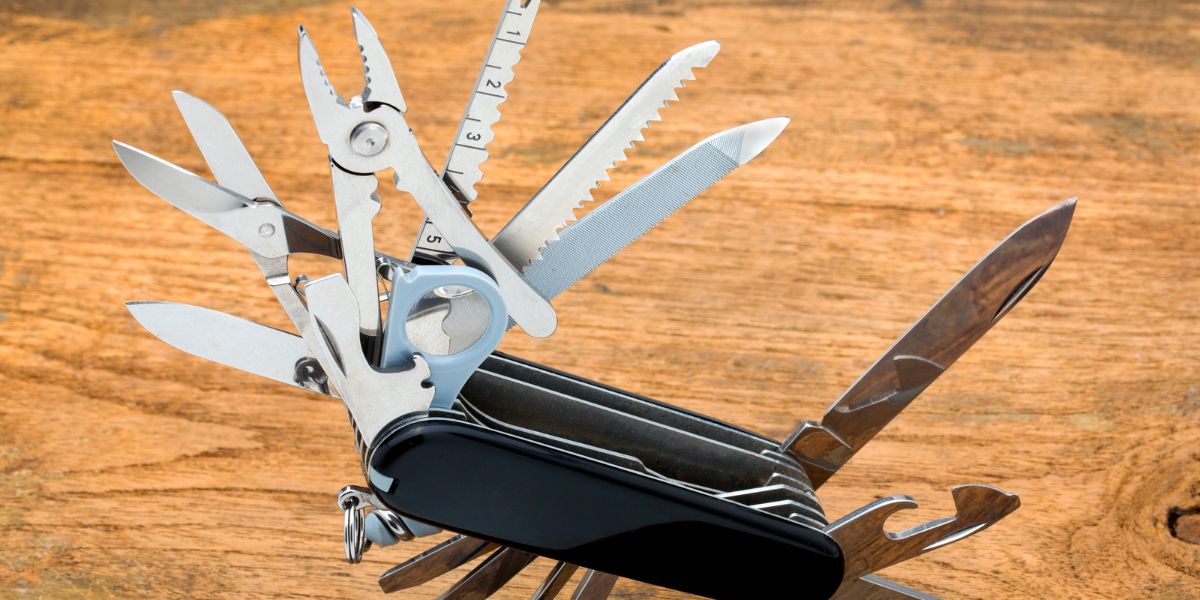
When you're out camping, being prepared can make all the difference between a memorable trip and a stressful one. You need essential safety tools that keep you and your group safe in the great outdoors. From first aid kits to navigation devices, each item plays a critical role. But what specific tools should you prioritize? Understanding their importance can help you tackle any situation that arises. Let's explore what you really need.
Essential First Aid Kits
When you head out into the great outdoors, a well-stocked first aid kit is your safety net. You never know when a scrape, cut, or insect bite might happen, so having the right supplies can make all the difference.
Start with adhesive bandages in various sizes for minor wounds. Include antiseptic wipes to clean cuts and prevent infection. Pain relievers like ibuprofen can help with headaches or muscle soreness.
Don't forget gauze pads and medical tape for larger injuries. If you have allergies, keep antihistamines handy. A pair of tweezers is essential for splinters, and a small pair of scissors can help with bandaging.
Always check your kit before you leave and restock any used items. Safety first!
Reliable Navigation Tools
While exploring nature's beauty, having reliable navigation tools can be your best ally. A good map and compass are essential, providing a trustworthy backup when technology fails. Familiarize yourself with these tools before your trip; practice using them to boost your confidence.
GPS devices can enhance your navigation experience, but remember they rely on battery life, so bring extra power sources. Smartphone apps can also be handy, offering offline maps and trail information, but ensure you download everything beforehand. Consider a portable power bank to keep your devices charged.
Finally, a personal locator beacon (PLB) can help you signal for help if you get lost. With these navigation tools, you'll feel secure and ready for any adventure.
Emergency Communication Devices
Navigating the wilderness can be unpredictable, so having reliable emergency communication devices is vital for your safety. A satellite phone is one of your best options, allowing you to call for help even in remote areas where cell service is nonexistent.
Alternatively, a personal locator beacon (PLB) can send distress signals with your GPS coordinates to rescue teams. Consider investing in a two-way radio for easier communication with your camping group, especially in dense forests where signals might fade.
Lastly, a handheld emergency weather radio keeps you updated on conditions that could affect your safety. Always ensure your devices are fully charged and packed, so you're prepared to reach out for help when you need it most.
Fire Safety Equipment
Fire safety equipment is essential for every camper, as it can prevent small sparks from turning into uncontrollable blazes. Always carry a portable fire extinguisher rated for outdoor use. Familiarize yourself with its operation before you need it.
A fire blanket is also a smart addition; it can smother flames on clothing or gear. Don't forget to pack a first-aid kit that includes burn cream.
When building a campfire, use a designated fire pit, and keep water or sand nearby to extinguish it completely. Make sure to adhere to local fire regulations and practice Leave No Trace principles.
Conclusion
Staying prepared for your camping adventure is key to enjoying the great outdoors safely. By packing a well-stocked first aid kit, reliable navigation tools, and effective emergency communication devices, you can tackle any unexpected challenges. Don't forget to include fire safety equipment to prevent accidents and ensure your safety. Regularly check your gear to make sure everything's in top shape. With these must-have safety tools, you're set for a memorable and secure camping experience!
Trending Products














